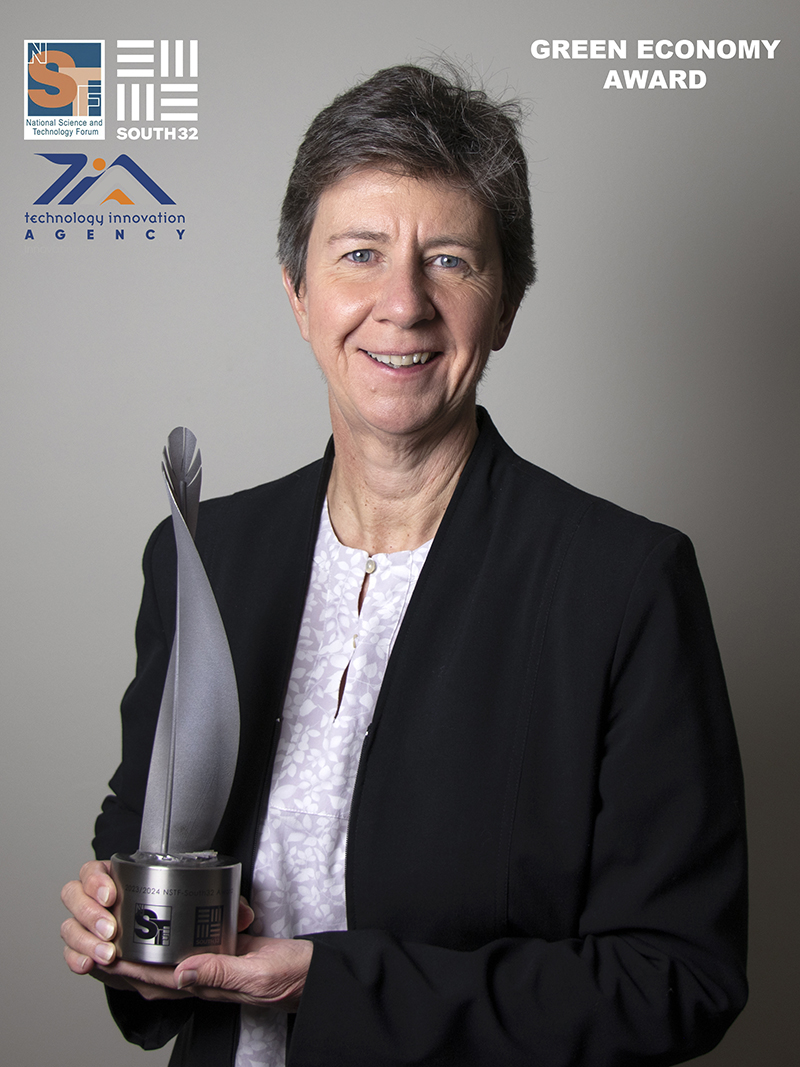Gone are the days of the throwaway economy. Environmental scientists and pioneers like Prof Linda Godfrey of the North-West University (NWU) are leading the charge towards a thriving circular economy.
With over 20 years dedicated to studying the waste sector, Prof Godfrey has observed the unsustainability of the traditional linear economy model, characterised by extraction, production, consumption, and disposal. She argues that this model has severe environmental and health impacts and advocates a shift to a circular economy.
“In a circular economy, products and materials are kept in circulation through processes like maintenance, reuse, refurbishment, remanufacturing, recycling and composting as a means of continuing production in a sustainable or environmentally friendly way.”
Prof Godfrey, a prominent figure in South Africa's environmental science sector, is an extraordinary professor at the Faculty of Natural and Agricultural Sciences at the NWU and a principal scientist at the Council for Scientific and Industrial Research (CSIR).
There, she manages Circular Innovation South Africa (CISA), a Department of Science and Innovation initiative hosted by the CSIR to advance the government's circular economy goals, which are outlined in the national Science, Technology and Innovation (STI) Decadal Plan (2022-2032).
She has also played a crucial role in shaping the country's Waste Research, Development, and Innovation (RDI) Roadmap for the DSI.
Highlighting her impact on sustainable development and waste management innovation, Prof Godfrey recently received a National Science and Technology Forum-South32 Award in the Green Economy category.
She is also making her (environmentally friendly) mark at the NWU. Early in 2024 she introduced a postgraduate study unit on the fundamentals of waste management. Her students are also gaining an in-depth understanding of the management of waste through its life cycle, based on her lecture, "A life cycle perspective of waste management – A linear view from cradle to grave vs a life cycle perspective of waste management: waste to worth”.
Emphasising the global importance of the circular economy, Prof Godfrey notes that resource extraction and processing cause significant climate impacts, biodiversity loss and water stress.
In contrast, the circular economy approach can help South Africa and other developing nations bypass the resource-heavy growth patterns of the global north, fostering sustainable and regenerative development.
Circular practices need to be scaled up in South Africa
The CSIR's recent studies aimed to explore the implications of the circular economy for South Africa's resource-intensive sectors such as mining, agriculture, manufacturing, energy, water, human settlements and mobility. These studies involved engaging with public and private sector experts to assess the current adoption level of circular practices, the readiness for circular economy transitions, and existing barriers.
The findings indicated that while circular practices are not new to South Africa, they have not yet reached a scale that makes a significant impact. Prof Godfrey stresses the need for demonstrating and de-risking these interventions to ensure rapid uptake and highlights the role of the National Innovation System in supporting this transition.
She identifies resistance to the adoption of new practices as a significant challenge in her research. This resistance is often due to fears of being first-movers or to a lack of implementation capacity. However, she views this challenge as an opportunity for scientists to engage more closely with stakeholders, improving communication to make research more accessible and actionable.
Through her various roles as a manager, researcher and educator, Prof Godfrey is dedicated to empowering future scientists. As CISA's manager, she oversees strategic investments in circular economy STI, collaborating with local and international researchers to support South Africa's transition to a circular economy. Her involvement in technical advisory committees ensures that developing country perspectives are considered in global discussions. This also enhances her teaching, which helps her to nurture young scientists and engineers.
Prof Godfrey is optimistic about the future of circular economy practices, especially after she attended the World Circular Economy Forum in Brussels in April, which highlighted global advancements in circular economy practices and policies. She underscores the importance of understanding and localising the circular economy concept for South Africa, emphasising the crucial role of the National Innovation System in developing and scaling new technologies that decouple economic growth from resource consumption.
Here comes the circular economy – and it is going to be here to stay.

Prof Linda Godfrey
